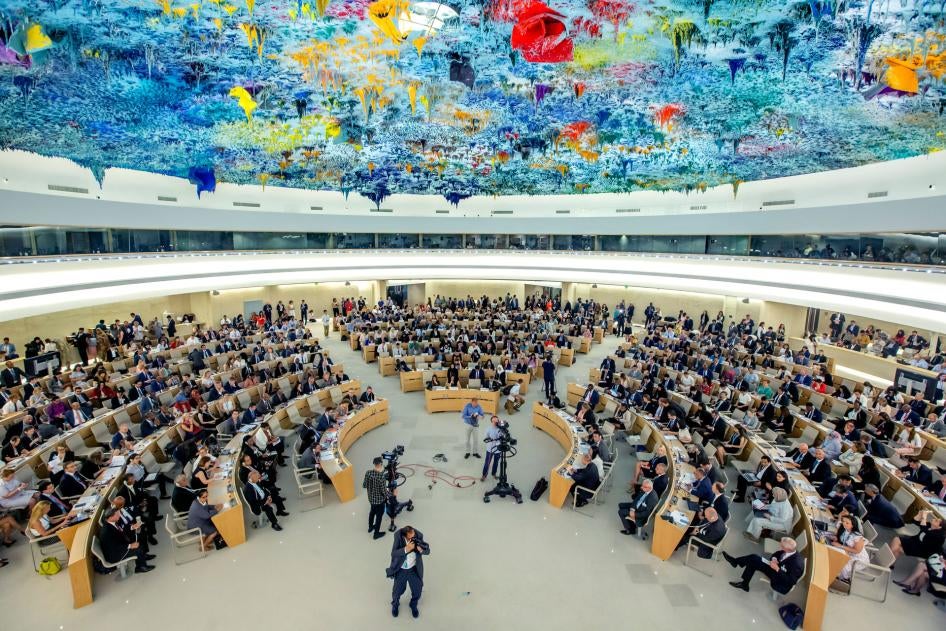The joint statements on Egypt and on Russia, delivered under item 4 by large cross-regional groups of states, bring much-needed attention to the rapidly deteriorating situation in these countries.
Ten years after the 2011 Egyptian nationwide uprising that ousted President Hosni Mubarak, Egyptians are still living under a repressive government that is stifling all forms of dissent and peaceful expression.
The recent shocking arrests and investigation of senior staff of the Egyptian Initiative for Personal Rights and the freezing of their assets in abusive proceedings before a terrorism court represent yet another instance in a long string of sustained, widespread, and systematic attacks against human rights defenders and civic space in the country.
In such a severely repressive environment, many human rights organizations have been forced to close, scale down their operations, operate from outside the country, or work under constant risk of arrests and harassment. It is imperative that states support robust follow-up action and ensure the Council maintains its attention and scrutiny on the human rights crisis in Egypt.
In Russia, the detention of thousands of peaceful protesters following the arrest and sentencing of opposition activist Alexey Navalny constitute only the tip of the iceberg of Russia’s deepening crackdown on media, critics and civil society.
In today’s Russia, a wave of new, repressive laws further restricted freedom of expression, assembly and association. They aim to demonize, marginalize, and ultimately penalize independent groups and voices. Several Russian activists have in recent months been criminally charged, fined, sentenced, or faced house-arrest under flawed laws, such as the law on “undesirable foreign organizations.” In December and January, new amendments drastically expanded the scope of the toxic “foreign agents” designation – extending it to almost any independent voice. These new measures risk dealing an especially crushing blow to an already severely restricted civil society.
The Council should maintain - and strengthen - its scrutiny of these two countries until these concerns are addressed in full.









